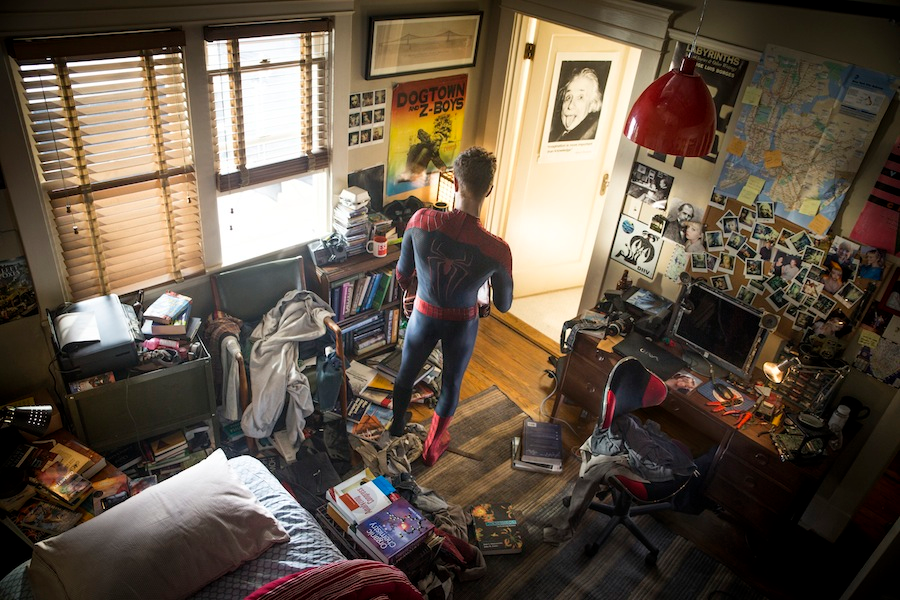Teacher
Professional
- Messages
- 2,669
- Reaction score
- 819
- Points
- 113

We live in a formulaic and predictable world. Almost everything in it is neatly packaged and organized. Society is constantly striving at all costs to maintain order in everything and everywhere.
But all this is nothing more than an illusion.
We have been taught a superficial understanding of symmetry.
Life is actually unpredictable and chaotic, although it seems to us that if everything is "organized", then it will be much better.
But in reality, the opposite is true. For example, you think that you need to buy a few more pants in order to have enough "for all time." You buy in addition. And then it turns out that all the things no longer fit into the closet. And he's just doomed to be a mess. Thus, by creating "order" in one place, you immediately create disorder in another.
You decide to throw all your unnecessary items into the trash can. At home it seems like there was "order", but the world as a whole has become dirtier. Here is what the physicist Adam Frank has to say about this:
This is the law of physics. The harsh truth of life is that the universe itself is chaos. How can you put things in order at home or in your life if it is contrary to the nature of the universe? In fact, no matter how much we try to keep our life in order and the house is neat, nothing comes of it. Clutter is always there and there.
What to do? Say yes to the chaotic nature of this world. Accept.
People who always have a mess at home are stigmatized. To those around them, they seem apathetic and leading a "wrong" life. But this is simply not true!
Disorganized people are better than everyone else. If only because they do not allow the false illusion of order to dictate their daily routine. Jim Morrison put it well on this topic:
I'm interested in uprising, in chaos, in chaos. It seems to me that this is the path to freedom.
This does not mean that every aspect of your life needs to be plunged into chaos. Being organized is sometimes important and even helpful. But you have no right to judge people living in disorder. Trust me: order is grossly overrated.
People who have a constant mess at home are not lazy. They are creative and bold.
Common sense tells us that cleanliness is the key to efficiency and productivity, but it is not.
Eric Abrahamson and David Friedman, authors of the bestselling science book A Perfect Mess: The Hidden Benefits of Disorder, write:
Clutter is not necessarily a sign of randomness. At a table where everything is scattered, you can work more efficiently than at a clean one. When a person has a mess on his desk, this does not mean that he does not work well. This means that he works so well that he just has no time to get out.
In other words, clutter may actually be a sign of efficiency, not disorder. Kathleen Vohs, Ph.D. from the University of Minnesota, has done research and has shown that people who tend to throw things around and accumulate trash are actually more creative than everyone else.
As part of this scientific work, Vohs conducted an interesting experiment. She divided 48 volunteers into two groups and asked them to find original ways to use the ping-pong ball. Half of the participants in the experiment were placed in a clean, tidy room, the others in a dirty one. In the end, both groups came up with an equal number of ideas, but the latter, according to the results of independent evaluations of other students, the ideas were more innovative and creative.
Vohs concludes:
We all want to become more creative people, to experience more insights. My advice to you: if you have a stupor, move to a dirty room. This will allow you to go beyond the usual perception and generate fresh ideas faster. Order is the result of our desire for security, chaos is our desire for creative rethinking of the world.
Clutter, of course, has long been closely associated with creative genius. Disorganization and untidiness are condemned in society, but most of the great minds have lived in such conditions all their lives: Albert Einstein, Alan Turing, Ronald Dahl. Even JK Rowling can't clean the apartment!
They all achieved greatness, despite the fact that their whole life was full of chaos. In general, if your parents punished you for not wanting to clean your room, then they made a mistake. Society ignores the hidden benefits of chaos.
It takes courage to beat the rules and live in your creative mess.
Albert Einstein once remarked:
"If a mess on a table means a mess in the head, then what does an empty table mean?"
Creative people see the whole picture of their life, and do not get hung up on its individual details. They go with the stream, not swim against the stream. They are easily adaptable to change. They know that time is too limited to waste on boring things like cleaning.
The simplicity and beauty of life is more important than visible "success" and "discipline" made. Passion is better than boredom.
Life is a disheveled, unpredictable and wonderful gift. Enjoy the trip.
© John Haltiwanger

